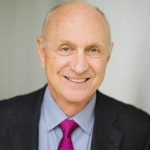JAMIE METZL—Technology and Healthcare Futurist, Global Affairs Specialist, Science Fiction Novelist, and Genetic Engineering Expert. Jamie Metzl is one of the world’s leading technology and healthcare futurists. He is the Founder and Chair of the global social movement OneShared.World, a Senior Fellow of the Atlantic Council, a faculty member of NextMed Health, and a Singularity University expert. His new book, Superconvergence: How the Genetics, Biotech and AI Revolutions Will Transform Our Lives, Work, and World, was released on June 11. Jamie is author of the bestseller, Hacking Darwin: Genetic Engineering and the Future of Humanity, the acclaimed science fiction novels Genesis Code and Eternal Sonata, and other books. He appears regularly on national and international media and his syndicated columns and other writing on science, technology, and global affairs are featured in publications across the globe.
https://speakers.com/speakers/jamie-metzl/
SPEAKING TOPICS INCLUDE:
Superconvergence: How the Genetics, Biotech & AI Revolutions Will Transform our Lives, Work & World
The keynote is squarely targeted at any person, business, or other organization trying to figure out what the AI and other technological revolutions mean for their futures. (Short answer: these transformations will be as profound as the agricultural, industrial, electrical, and information revolutions, providing many new challenges and almost unfathomable opportunities.) Metzl will also make many very practical recommendations for steps we can each and all take to optimize benefits and minimize harms.
The Great Biohack: How the Overlapping AI, Genetics & Biotechnology Revolutions will Transform our Healthcare, Lives, Work & World
The rapid growth of new AI systems like ChatGPT have made most people realize significant change is on the horizon. But while most people still think of these AI capabilities as improved internet search tools, the implications are far more profound. Just like the industrial and computer revolutions, the AI revolution will transform most every aspect of our personal and professional lives. Along with our new capabilities in genetics and biotechnology, it will change how we live and work, our economies, our healthcare, the foods we eat, and our interactions with the world around us. In this both far-reaching and highly practical talk, leading futurist Jamie Metzl explores the big picture implications of this transformative moment in human history and how individuals, companies, and societies can best ride the wave of this change rather than be subsumed by it.
The Biology Revolution Will Change Everything. Are You Ready?
The miraculous synthetic mRNA COVID-19 vaccines are just small, early examples of how the genetics and bioengineering revolutions will transform our world. Faster than most people understand or appreciate, our growing, superhuman capabilities to restructure the building blocks of life will fundamentally alter the way we prevent and treat disease, make babies, generate energy, grow food, store data, and create materials. But while this process had already begun before COVID-19, the pandemic has catapulted the biology revolution to a new phase just like World War II supercharged electronics and space travel generations ago. And just like the information technology revolution started small then “ate the world,” the biology revolution is about to change much of everything – and we are not ready. Visionary futurist Jamie Metzl describes how the biology revolution will play out over the coming years and decades and what we can all do on a personal, professional, and global level to prepare and thrive.
ChatGPT, Technology, Innovation & the Exciting Future of Healthcare
ChatGPT has quickly become the fastest growing application in history. The implications of this and other AI systems will soon extend to most every aspect of our lives and every sector of our economy, not least healthcare. The transition from today’s system of generalized medicine based on population averages to the new model of precision healthcare based on each person’s individual biology is already well underway. But the use of the precision medicine tools of genome sequencing, big data analytics, and targeted gene therapies to treat cancer and other diseases are paving the way for a further transition to more predictive and preventive healthcare. In this talk, Jamie Metzl elucidates how the tools and capabilities of the intersecting artificial intelligence, genetics, and biotechnology revolutions are transforming healthcare and lays out key principles for how health industry professionals, the business community, governments, and individuals can prepare for a revolution that is coming far sooner than most people recognize.
Beyond the Blue Zones: What the Revolutionary Science of Human Life Extension Means for You
Most everybody knows we should exercise, eat well, build meaningful communities, and reduce stress to live healthy longer. But the revolutionary new science of human life extension is creating enticing new possibilities for using technology to extend our lives far beyond what nature intended. While the quest for immortality has been the stuff of fairy tales, the new science of life extension will soon be pushing the limits of aging and unlocking human potential in ways our ancestors never could have imagined. Technology futurist Jamie Metzl explores the latest breakthroughs in the science of human life extension that promise to gain us more of life‘s most precious commodity: time. Jamie explains what individuals, companies, and governments must do now to prepare for this revolutionary future that will fundamentally reorganize our societies and global economics.
JEFF GOLDSMITH—One of America’s Premier Healthcare Futurists. Jeff Goldsmith is the President of Health Futures, Inc. For eleven years ending in 1990, Jeff Goldsmith was a lecturer in the Graduate School of Business at the University of Chicago, on health services management and policy. He has also lectured on these topics at the Wharton School of Finance, Johns Hopkins, Washington University and the University of California at Berkeley. Jeff Goldsmith’s interests include biotechnology, health policy, international health systems, and the future of health services. From 2016 through 2019, Jeff Goldsmith was National Advisor for Strategy to Navigant Healthcare, a diversified consulting firm that is now part of Guidehouse. From 1982 to 1994, Jeff Goldsmith served as National Advisor for Healthcare for the firm Ernst and Young and provided strategy consultation to a wide variety of healthcare systems, health plans, supply and technology firms.
https://speakers.com/speakers/jeff-goldsmith/
SPEAKING TOPICS INCLUDE:
What Makes a Health System?
Health care organizations have grown steadily larger and more complex over the past thirty years. Most of them call themselves “health systems”. But are they really systems and have patients and those who pay for care benefited from this growth and complexity? Why has “health system” operating performance deteriorated sharply since the historic Affordable Care Act coverage expansion? How can health systems make changes in their operations and management that patients notice? What does it mean to be a health system?
2040: A Healthcare Odyssey
In 1986, in Hospitals’, Jeff Goldsmith looked ahead fifty years to the US healthcare system in 2036. In 2016, Jeff revisited these forecasts, noting both accurate and inaccurate predictions, and looked ahead yet again to the health system in twenty years. In 2037: A Healthcare Odyssey, Jeff examines the digital health revolution he foresaw in his 1986 piece, and how it is likely to affect care. He also looks at the concluding chapter of the baby boomer’s saga, as well as promising new progress in the neurosciences and produces a fresh forecast for the US health system in twenty years.
Opiate Crisis: Tip of a Population Health Iceberg
In 2016, more than sixty thousand Americans died of drug overdoses, 42 thousand from opioids. Drug death is the SuperStorm Sandy of public health threats, likely to claim more victims than the AIDS Epidemic. Yet it is the most visible manifestation of a more troubling trend-declining American life expectancy. In both 2015 and 2016, American life expectancy declined, the first two-year decline since the early 1960s. During the same two years, the US spent nearly $7 trillion on healthcare. What are the underlying drivers of this deeply troubling trend. and what can policymakers and the care system do about it?
The Future of Medical Practice: What Does it Look Like?
Physicians have vigorously defended the institution of private medical practice for more than a century. Yet, in the past five years, medical practice appears to be consolidating under hospital and, to a lesser degree, health plan control. The uncertainties introduced by health reform, economic pressures from the sustained US recession and the impending retirement of the large baby-boom era cohort of practicing physicians all have contributed to a sense that private medical practice is doomed. Is there a future for private medical practice? This lecture discusses the turnaround strategy for physician practice in the post-health reform era, as well as the role that hospitals, health plans, private equity and technology firms can play in reforming and strengthening medical practice.
Organizing for Risk: How hospitals and physicians can collaborate both to contain cost and improve quality.
Health reform is changing both how and how much the care system is paid. This lecture reviews the history of both hospital and physician efforts both to sponsor and to contract with health plans and discusses how they can become more accountable for both the cost and value of what they do. It will also review what’s happened to the idea of “accountable care organizations” (ACO’s) and what some viable alternatives to the strategy might be.
Health Reform: What can the US Learn from Other Countries The United States spends almost double per capita what other countries spend on healthcare, yet produces inferior health outcomes.
Why does health care cost so much more in the United States than anywhere else in the world? How do other countries finance and organize health care? What can we learn from their experience that will help the United States reshape its health system? What can other countries learn from the United States’ experience?
LEANA WEN—CNN Medical Analyst; ER Physician, Healthcare Executive, Washington Post Columnist, and Best-Selling Author. Dr. Leana Wen is an emergency physician, CNN medical analyst, and op-ed columnist for The Washington Post, where she writes a weekly column and anchors the Post newsletter, “The Checkup with Dr. Wen”. She is also a professor of health policy and management at George Washington University, a nonresident senior fellow at the Brookings Institution, and author of two books, When Doctors Don’t Listen: How to Avoid Misdiagnoses and Unnecessary Tests and Lifelines: A Doctor’s Journey in the Fight for Public Health. A member of the Council on Foreign Relations, Dr. Wen has received recognition as one of Governing’s Public Officials of the Year, Modern Healthcare’s Top 50 Physician-Executives, World Economic Forum’s Young Global Leaders, and TIME magazine’s 100 Most Influential People.
https://speakers.com/speakers/dr-leana-wen/
SPEAKING VIDEOS
TED TALK: What Your Doctors Won’t Disclose
https://www.youtube.com/watch?v=lVQ3KUTHDe0
POPULAR SPEAKING TOPICS:
Lessons from COVID-19 and Implications for the Future of Healthcare
CNN medical analyst Dr. Wen has been one of the nation’s leading experts during the COVID-19 pandemic, called upon for her expertise by Congress, state and local governments, businesses, schools/universities, and scientific organizations. She can speak to the learnings from COVID-19 and what it has revealed about the need to focus on social determinants of health, public health preparedness, and care for the most vulnerable. She can then look forward to the future. What are major trends in payment reform, health workforce, and medical technology, and how will they, in the recovery from the pandemic, shape the future of public policy and healthcare delivery?
Reducing Health Disparities and Striving for Health Equity
Dr. Wen is a leading national expert on health disparities. During the COVID-19 crisis, she was asked to testify four times to the U.S. House of Representatives on the unequal impact of the pandemic on communities of color. While she served as Baltimore’s health commissioner, she reconfigured the agency to specifically focus on health equity and was among the first leaders to declare racism as a public health crisis. She can speak from the lens of current events on how COVID-19 has unmasked existing disparities and specifically focus on innovative solutions that reduce disparities and improve health in the short-term, as well as long-term efforts to address structural inequities. Here, she draws upon lessons in her new book, Lifelines: A Doctor’s Journey in the Fight for Public Health and gives specific examples of successful innovations that reduce disparities and improve equity.
Mental Health and Well-Being
The stress that employees have endured during the pandemic will not vanish after the immediate crisis passes. Employees have been coping with isolation, dealing with loss, acting as caregivers, and struggling with childcare. Dr. Wen brings audiences a world of insights and understanding from her work as a practicing physician, former Health Commissioner of Baltimore, and chairwoman of a nonprofit addressing mental health and addiction. She shares personal experiences (including her own battle with postpartum depression and her experience as a caregiver to her ailing mother), best practices on employee health and well-being, and strategies for developing resiliency. And she outlines for audiences a framework for incorporating mental and physical wellness practices into the office, home, and everyday life.
JASON HWANG—Healthcare Futurist. Jason Hwang, M.D., M.B.A. is an internal medicine physician who is co-founder and chief medical officer of Icebreaker Health (Lemonaid Health), a California-based health care startup that is transforming primary care by delivering services via smartphone app. Dr. Hwang previously co-founded and was the Executive Director of Healthcare at Innosight Institute (now renamed the Clayton Christensen Institute for Disruptive Innovation), a non-profit social innovation think tank that is driving the reinvention of the health care industry, making it more accessible and user-friendly. Dr. Hwang coauthored The Innovator’s Prescription: A Disruptive Solution for Healthcare with Professor Clayton M. Christensen of Harvard Business School and the late Jerome H. Grossman of Harvard Kennedy School of Government.
https://speakers.com/speakers/jason-hwang/
POPULAR SPEAKING TOPICS:
The Innovator’s Prescription: How Disruptive Innovation Will Transform Health Care
In the absence of the ability to precisely define a disease, the care of patients is best undertaken by highly skilled professionals, whose intuition is based on deep experience. This describes the history of health care, and we call this the practice of intuitive medicine. Molecular biology holds the promise of transforming medical practice into a new phase that we call precision medicine. It promises to dramatically reduce cost and increase the predictable effectiveness of therapy.
Disrupting U.S. Health Care
When we think of “quality” health care, we generally assume that more expertise is always preferred — doctors must be better than nurses, specialists must be better than primary care doctors, and hospitals and clinics must be better than virtual interactions. This mentality, in part, has left us with a health care system that is unaffordable, inconvenient and largely broken. But if we were to apply the principles of disruptive innovation to our collapsing health care system—by using advances in technology to help nurses and primary care physicians to do more sophisticated work—a costly, hard-to-schedule trip to the doctor may become increasingly rare. Disruptive innovations like direct-to-consumer diagnostics, patient-controlled electronic health records, telemedicine, and hospital-at-home models of care have the potential to create transformative change in the health care industry, argues physician Jason Hwang. Such models of care also have the potential to be superior options with distinct advantages for paving the way toward more accessible, affordable and quality health care.
How Technology is Changing Health Care – for Good
Traditional health care is simply not set up to evolve alongside rapidly advancing technologies. Consider the influx of health data from wearable fitness devices and home diagnostic equipment. Doctors either don’t know what do with the data, or they can’t keep up with the data deluge. What’s needed is a software solution that can absorb and process the data, supported by doctors who can then make both the sophisticated and regulatory-required decisions, says Dr. Jason Hwang. It already exists in what Dr. Hwang describes as an asynchronous, cloud-based platform. By moving more of the rote, routine care online – “automating the automatable” – it frees up capacity for doctors to focus on more complex care that genuinely requires their expertise. Dr. Hwang also explores the changing relationship between providers and patients, and explains why he believes digital health care will ultimately enhance doctor satisfaction and help eliminate doctor shortages.
Reinventing the Business Models of Hospitals and Physician Practices
When health care professionals speak of reforming health care, they often cite solutions that merely preserve or reinforce the existing model of care delivery, such as tort reform, new payment codes and an expanded pool of doctors. But physician Jason Hwang argues that health care reform starts with changing its longstanding business model, an antiquated one-size-fits-all delivery system that struggles to do everything for everyone. For true health care reform, Hwang says, we need to deploy distinct business models that focus on different aspects of care. Under a “solution shop” model, care is organized around intuitive diagnostic activities and complex, multidisciplinary cases. In contrast, a “value-adding process” business model is organized around well-established and highly-predictable routines, such as joint replacement or endoscopy, and the entire business – even the facilities, training, and pricing – revolve around performing that one procedure perfectly time after time. By reinventing the traditional health care business model, says Hwang, we will no longer have to rely on a system that wants to be all things to all people.
Will Smartphones Replace Your Doctor? The Impact of Digital Health
Our population is living longer. There continues to be a shortage of nurses and primary care doctors. Provisions of the Affordable Care Act — guaranteed issue and mandated coverage of many preventative services – have taken effect. The demand for affordable, quality health care is growing, and there is no way to fulfill it through existing models of care where every problem requires you to see a doctor, in person. Jason Hwang believes highly scalable digital health technologies are poised to vastly improve health care – for everyone. Drawing from experiences with his own telehealth start-up PolkaDoc, as well as his work with the X-PRIZE Foundation, Hwang talks about technology’s sophisticated yet affordable solutions that already exist – from ultrasounds and EKGs to diagnosing of ear infections or rashes, all via smartphones – and discusses the potential that simple digital innovations like text messaging, avatars and apps have for helping patients get better care, earlier and more efficiently. The value of digital health to transform health care is tremendous.
JOHN ROSSMAN—Former Amazon Executive, Best-Selling Author and Expert on Digital Disruption. John is a former Amazon Executive, Advisor to the Gates Foundation & T-Mobile, 4x Best-Selling Author, and Leading Innovation Speaker. John Rossman stands as a formidable figure in the realm of innovation keynote speaking. As a former Amazon executive, he was instrumental in the inception and expansion of the Amazon Marketplace. His vast experience also includes serving as a Senior Technology Advisor to the Bill and Melinda Gates Foundation and a Senior Innovation Advisor at T-Mobile. His career is further highlighted by his authorship of four best-selling books, including The Amazon Way, Think Like Amazon and Big Bet Leadership, which delve into Amazon leadership principles, operating models and culture for accountable teams, continuous improvement, customer centricity and the ability to transform as an AI-driven enterprise with a sustainable competitive advantage.
https://speakers.com/speakers/john-rossman/
SPEAKING TOPICS INCLUDE: (Tailored to each audience)
Reinventing Healthcare & Insurance Through Customer Centricity, Innovation & Leadership — The Amazon Way
Rossman offers a roadmap for revolutionizing these critical sectors through relentless customer centricity, robust innovation, and transformational leadership. Rossman unpacks the essence of Amazon’s customer-centric approach, illustrating how this relentless focus can be adapted to the healthcare and insurance fields to significantly improve service delivery, patient and client satisfaction, and operational efficiency. He highlights case studies and strategies from “The Amazon Way”, showing how these can be directly applied to enhance interactions at every customer touchpoint, streamline processes, and reduce inefficiencies, all while maintaining privacy and compliance with industry standards.
Expanding on the themes from “Think Like Amazon,” Rossman dives into the ’50 1/2 ideas’ that are particularly relevant to digital transformation in healthcare and insurance. He explains how embracing a digital-first mindset and integrating cutting-edge technologies like AI and big data analytics can lead to innovative solutions that are cost-effective, highly scalable, and precisely tailored to user needs.
Rossman challenges industry leaders to think differently about legacy systems and entrenched practices, promoting a culture of innovation. The keynote culminates with strategic insights from “Big Bet Leadership,” where Rossman elucidates the importance of making calculated, bold moves to lead disruptive change effectively. He discusses how the principles of leadership that guided Amazon through its most critical bets can be employed to spearhead reform in healthcare and insurance. Audience members will leave equipped with a blueprint for embedding customer centricity at the heart of their operations, leveraging innovation to solve complex challenges, and leading change that anticipates the future of their industry.
Leaving Your Audience with…
• A Customer First Framework: Learn how to apply Amazon’s customer-centric methods to enhance patient and client satisfaction in healthcare and insurance.
• Innovative Problem Solving: Integrate cutting-edge technologies and innovative practices to address complex challenges within the healthcare and insurance sectors.
• Leadership in Disruption: Adopt bold leadership principles from “Big Bet Leadership” to effectively navigate and lead disruptive changes.
• Strategic Digital Transformation: Utilize the ’50 1/2 ideas’ from “Think Like Amazon” to drive digital transformation that scales and adapts to evolving market needs.
• Operational Excellence: Implement Amazon’s strategies to improve efficiency, reduce costs, and deliver superior service quality.
DIANE SIEG—Former ER Nurse, Resilience Expert and Best-Selling Author of STOP Living Your Life Like an Emergency! Although Diane Sieg literally help put people back together working 23 years in emergency rooms across the country, her passion has always been to help people break through before they break down. When Sieg left the emergency room, she wanted to help healthcare providers, especially nurses, take care of themselves. Her first book, STOP Living Life Like an EMERGENCY! Rescue Strategies for the Overworked and Overwhelmed, was a huge success and led her to speak to thousands of healthcare providers at national conferences, association meetings, and individual hospitals. Sieg wrote her second book, 30 Days to Grace; A Daily Practice to Achieve Your Ultimate Goals, and created the 30-Day Mindfulness Challenge. Today, as a speaker, author, life coach, nurse, and yoga teacher, she brings resilience skills to healthcare organizations.
https://speakers.com/speakers/diane-seig/
SPEAKING TOPICS:
Leading with Resilience in Challenging Times
With record-high rates of burnout, turnover, and disengagement in healthcare, these challenging times require resiliency more than ever –and it starts with leadership. Learning to incorporate and model key resilience practices such as compassion, engagement, and self-leadership, the resilient leader becomes the key to a culture shift that results in less burnout, greater retention, and restoration of the joy, meaning, and purpose in work. This kind of re-engagement transforms people into better caregivers and better colleagues, which directly translates to improved patient quality surveys and an improved bottom line. The critical resilience skills taught can be immediately applied and taken back to staff to help create and sustain a resilient culture at the unit, department, and organizational level.
Chaos to CALM with Resilience!
Chaos in healthcare today impacts all healthcare workers. While we can’t do anything about the current healthcare crisis, there are teachable skills that can keep you focused, productive, and resilient by being calmer in the face of chaos. Without resilience, people become overwhelmed, make more mistakes, take longer to do things, and become physically and emotionally exhausted — all expensive in human and financial costs. Chaos to Calm teaches specific, practical skills such as mindfulness, compassion, and self-leadership to handle chaos so that even in the middle of the storm we can remain engaged and resilient.
Self-Leadership in a Pandemic (and Every Other Crisis)
The current crisis in healthcare exposes all of our vulnerabilities, requiring us to slow down, evaluate, and improve our systems professionally and personally. Powerful, effective leadership is needed today more than ever, and the most effective leaders know how to lead themselves first. By practicing self-leadership, they empower their colleagues, teams, and organizations which is critical during times of crisis. Self-leadership is a unique set of skills and behaviors that include trust, transparency, compassion, connection, and vulnerability. Regardless of your title or experience, role modeling self-leadership has ripple effects felt throughout the organization, building teamwork, engagement in vision and mission, and a reconnection to ourselves and our noble profession.
Physician Burnout – What You Can Do NOW
According to the American Foundation for Suicide Prevention, we lose 300-400 physicians by suicide each year. Physicians struggle to maintain the value and joy that brought them to medicine, resulting in record-high burnout. Today, doctors are called upon to be both technical and clinical superheroes, while burdened with more responsibilities and pressures –taking a toll. Most doctors are hesitant to seek out support and unfortunately the practices that could help them are just starting to be recognized in medical schools. Critical resilience skills such as mindfulness, compassion, and self-leadership are teachable and practical skills that can change the trajectory of burnout, disconnection, excess, and lack of meaning-making a difference now.
Reclaiming the Spirit of Nursing
Do you remember when you first decided to become a nurse? For most, the decision was a defining moment—not only for you, but for every hand you have held, every brow you have wiped and every tear you have shared with patients and their families since. Still, short staffing, increased acuities and complexities of care provide daunting challenges for nursing leaders everywhere. Let Diane challenge and inspire you to reclaim your passion and pride for nursing so that you can continue to inspire your staff, your peers and most importantly, yourself!
DANIEL KRAFT— Physician Scientist, Innovator & Faculty Chair at Singularity University. Daniel Kraft is a Stanford and Harvard trained physician, scientist, entrepreneur, inventor and innovator who speaks on how rapidly developing technologies are and will impact the future of healthcare and medicine. Dr. Kraft is a world-renowned visionary in medicine. His expertise has led him to chair the Medicine Track at Singularity University. He is the founder and executive director of Exponential Medicine (formerly called FutureMed) and focuses on leveraging exponential technologies in health and medicine over the next decade. As a physician, Dr. Kraft specializes in hematology/oncology & bone marrow transplantation and has done extensive research in stem cell biology and regenerative medicine. Dr. Kraft advises many companies and organizations, including the X-Prize and health incubators.
SPEAKING TOPICS INCLUDE:
The Future of Health and Medicine: Where Can Technology Take Us?
From the perspective of a leading physician-scientist, inventor and innovator, Dr. Daniel Kraft will examine rapidly emerging, game-changing and convergent technology trends and how they are and will be leveraged to change the face of healthcare and the practice of medicine in the next decade, crossing the healthcare continuum from health and prevention to diagnostics and therapy. A dive into where emergent fields such as low cost personal genomics, digital health, crowdsourced data, molecular imaging, wearable devices & mobile health, synthetic biology, robotics, artificial intelligence, 3D printing to gene therapy and regenerative medicine are transforming healthcare, and have the potential to enable clinicians, empower patients and payers and deliver better, more proactive care while improving outcomes at lower cost.
DIANA JORDAN—Motivational & Stand-Up Comedian, Healthcare Speaker, and Cancer Survivor. Speaking professionally for well over a decade and performing as an award winning standing up comedian for twenty years, Diana Jordan has entertained over a million people live on television and film. Diana also has made her mark in the movies appearing alongside TOM CRUISE in JERRY MACGUIRE, studying with ROBIN WILLIAMS, and recently appearing in the movie, “BLOOD PAGEANT’ with the one and only SNOOP DOGG! When diagnosed with breast cancer Diana came to realize that by making people laugh, she could help them deal with life’s stresses, motivate them, and teach them what she has learned over the past 30 years about how great laughter is in nourishing yourself and changing your outlook on life! Comedy also helped Diana deal & heal the wounds of an unsettling childhood of being bullied for having (undiagnosed) A.D.D. and dyslexia.
https://speakers.com/speakers/diana-jordan/
SPEAKING TOPICS:
The Healing Power of Laughter!
A laugh-out-loud presentation with a great message! If you want an uplifting, insightful, and not your typical boring cookie-cutter speaker, you want Diana Jordan. As a motivational, entertaining and cancer survivor Speaker, Diana brings an inspirational, informative, and funny look into the healthcare field like only she can. Diana drives home the message of how people in the healthcare industry always seem to take care of themselves last. “Put your oxygen mask on first! Even if yellow isn’t your best color!” Being a four year breast cancer survivor, Diana knows a thing or two about all areas of Healthcare. From her diagnosis forward she has experienced it all.
How to use your Comedy Sense Of Humor in the Workplace!
What if you could hire a fantastic speaker who was not your same cookie-cutter type? What if after the event people talked and laughed for weeks about how fantastic she was? What if you would look like a hero for finding her and hiring her? Congratulations! You found her! Business Comedian, Corporate Keynote Motivational Speaker, and Laughter Therapist Diana Jordan believes you can’t be less stressful and fearless in business unless you are less stressed and fearless in your life. Dare to see the positive in all kinds of changes and use your common sense of humor to deal with the challenging situations. Sharing laughter has been proven to bond people, increase productivity, make for less sick days and happier employees!
Nourishing the Nurse Within You as you deal with Change!
Being a breast cancer survivor, Diana knows a thing or two about nurses and the tremendous stress they are under and the compassion that fills them.Diana knew first hand that Angelina Jolie was in good hands when she discovered that they shared the same Physicians for their mastectomy; Dr. Christy Funk of The Pink Lotus Breast Center and plastic surgeon Dr. Jay Orringer both of Beverly Hills, California. If you’re looking for a fun, uplifting, and insightful message, then look no further than Diana Jordan one of the County’s most popular women’s healthcare speaker. Diana shares how you can cope better with change in the workplace, prevent less sick days, lower stress, what causes stress, who causes stress and could you be addicted to stress? All of this is wrapped in a fun and funny package that explains why Oprah tagged her, “One of the funniest people on the planet!” and Dr. Oz says, “Hire Diana! She proved how laughter is indeed the best medicine and I LOVE her gigglebox!” Diana brings home the message of how laughter is the best medicine and how we need to take time to love and laugh more. She brings humor but keeps the importance of having healthy work and mental habits. Her topics are all real-life situations that we can all relate to but how important it is to our health to find the humor in it along the way. Everyone leaves feeling energized and informed.
How I Used my Sense of Humor to Fight Cancer!
Through her yearly mammogram and ultra sound four years ago, Diana was diagnosed with stage one breast cancer. Her Mastectomy was performed by Breast Surgeon Dr. Kristi Funk of The Pink Lotus Breast Center in Beverly Hills and Dr. Jay Orringer, reconstructive plastic surgeon of Beverly Hills as well. In 2013, these same surgeons were chosen by ANGELINA JOLIE to perform her bi-lateral preventative mastectomy due to her carrying the BRACA gene. Diana shares her journey and personal story as no one else can. And she makes it fun! “Your circumstance may not be funny so it is important to find the funny things in life around you and engage! Don’t be a bystander!” Diana has been a favorite speaker at many Susan G. Komen Race for the Cure luncheons and Cancer awareness events over the years. Her many years of experience as a comedienne shines through as she delivers a heart-felt message about early detection and taking responsibility for your own health.








